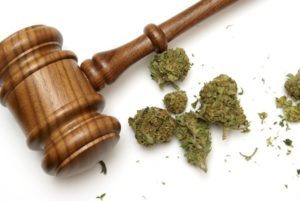 In its adoption of N.J.S.A. 2C:35-14, the Legislature established an exception to the presumption of incarceration for first and second-degree offenders that is independent of any determination required under N.J.S.A. 2C:44-1(d). Although a probationary sentence “is almost never appropriate under the Code’s sentencing provisions” for first and second-degree offenders, a special probation Drug Court sentence “is another authorized disposition under the Code.” The Legislature created special probation as a disposition aimed specifically at prison-bound offenders, who would not be eligible for regular probation.
In its adoption of N.J.S.A. 2C:35-14, the Legislature established an exception to the presumption of incarceration for first and second-degree offenders that is independent of any determination required under N.J.S.A. 2C:44-1(d). Although a probationary sentence “is almost never appropriate under the Code’s sentencing provisions” for first and second-degree offenders, a special probation Drug Court sentence “is another authorized disposition under the Code.” The Legislature created special probation as a disposition aimed specifically at prison-bound offenders, who would not be eligible for regular probation.
For a defendant otherwise eligible for a special probation Drug Court sentence, N.J.S.A. 2C:35-14 renders inapplicable the presumption of incarceration that would otherwise apply. It provides that “any person who is ineligible for probation due to a conviction for a crime which is subject to a presumption of incarceration or a mandatory minimum period of parole ineligibility may be sentenced to a term of special probation.”
The statute further provides that “notwithstanding the presumption of incarceration, an otherwise qualified defendant may be admitted to Drug Court provided the court makes findings of nine specified factors. The plain language of N.J.S.A. 2C:35-14 therefore establishes a separate and independent standard for the imposition of a probationary Drug Court sentence for defendants who would otherwise be subject to the presumption of incarceration.
Regarding the nine factors, the last paragraph of 2C:35-14 reads:
In determining whether to sentence the person pursuant to this section, the court shall consider all relevant circumstances, and shall take judicial notice of any evidence, testimony, or information adduced at the trial, plea hearing, or other court proceedings, and shall also consider the presentence report and the results of the professional diagnostic assessment to determine whether and to what extent the person is drug or alcohol dependent and would benefit from treatment. The court shall give priority to a person who has moved to be sentenced to special probation over a person who is being considered for a sentence to special probation on the court’s own motion or in accordance with the provisions of 2C:35-14.2.
The last sentence provides a strong point to be made on behalf of every drug court applicant who applies before a trial and jury verdict. These applicants should be given positive weight for choosing to apply for drug court instead of being considered on the Court’s on motion.
